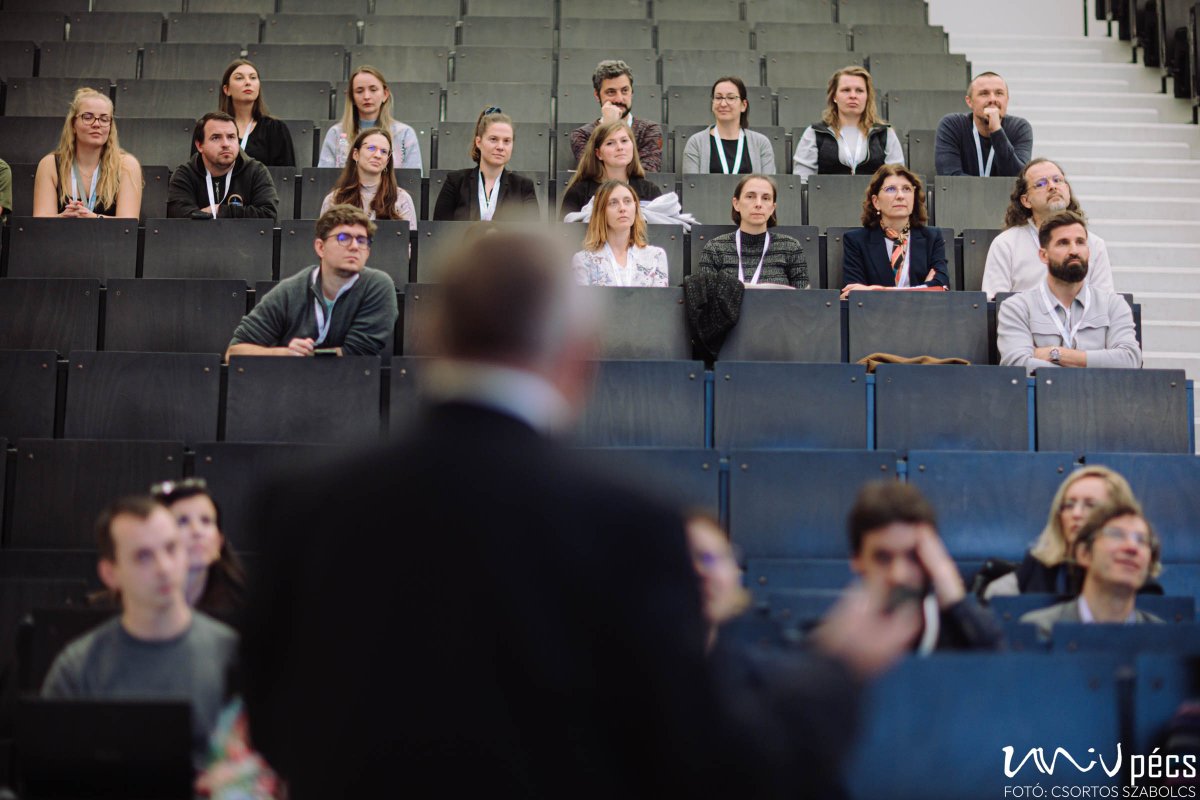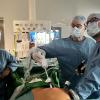International fight against viruses
2024
Nov
29
How can the Balkan region cope with the growing threat of vector-borne diseases? The answer lies in international cooperation and coordination of scientific research. This is the aim of the annual meeting of the Balkan Association for Vector-Borne Diseases (BAVBD), hosted this year by the National Laboratory of Virology of the University of Pécs. Researchers and international experts from the region shared their experiences and sought solutions to public health challenges at the event, which took place from 28-29 November.

The Balkan region is increasingly exposed to the spread of diseases that can be carried by biting mosquitoes and ticks due to climate change and globalisation. Pathogens such as West Nile virus or Lyme disease can pose a serious threat to the health of the population.
The aim of the meeting is to share research, practical experiences and international cooperation to address global health challenges, contributing to the development of sustainable solutions.
This year's event is hosted at PTE Szentágothai János Research Centre (SZKK), where participants can not only learn about the scientific innovations of the venue, but also have the opportunity for international dialogue.

On the opening day of the conference, Dr. Gábor Kovács, Scientific Director of the SZKK, presented the work of the scientific centre in Pécs and its international recognition. He described the main research areas of the centre, highlighting its pioneering work in the field of biosafety. "More than 200 researchers work in our organisation every day. Over the past years, we have published more than 2,000 papers," the Director said.
"The Szentágothai Research Centre plays a prominent role in the field of innovation and research not only in Hungary but also at an international level," the professor stressed.
In his presentation, he highlighted the scientific and cultural importance of Pécs, and presented the research programmes linked to the university, with a special focus on projects related to biosafety and epidemiological risk management.

The conference was opened by Dr Gábor Kemenesi, Director of the National Laboratory of Virology (VNL). Introducing the VNL, the virologist stressed that the aim of the laboratory is to prevent and treat epidemics and to advance scientific knowledge. The laboratory has four research groups covering a broad spectrum from disease ecology to vaccine development. These groups are committed to developing effective systems for early detection and intervention.
"Since the beginning, which was back in 2007, we have been focusing on zoonoses. Why? Because most infectious diseases in humans come from nature." - said the researcher in his opening presentation.
He also highlighted the need for collaboration between research in global networks, such as mosquito control and virus monitoring. Finally, the director highlighted the educational and knowledge transfer role of the laboratory, confirming its leading role in infectious diseases and biosafety research in Hungary.

The event was attended by Dr. Lisa M. Astuto Gribble, representing Sandia National Laboratories, who presented on how they are helping to reduce laboratory biohazards worldwide. She said that the global biosafety curriculum they have developed has already reached over 19,000 professionals and stressed the importance of training, risk assessment and sustainability.
"Urbanisation, globalisation and intensive livestock farming are creating situations that favour the emergence and spread of zoonoses," said the laboratory's representative.
Furthermore, she pointed out that the management of biological risks in laboratories is a priority, especially in the case of accidental or deliberate risks of contamination.
The programme of the annual meeting of the Balkan Association for Vector-Borne Diseases can be found here.
- Log in to post comments
University of Pécs | Chancellery | IT Directorate | Portal group - 2020.

















